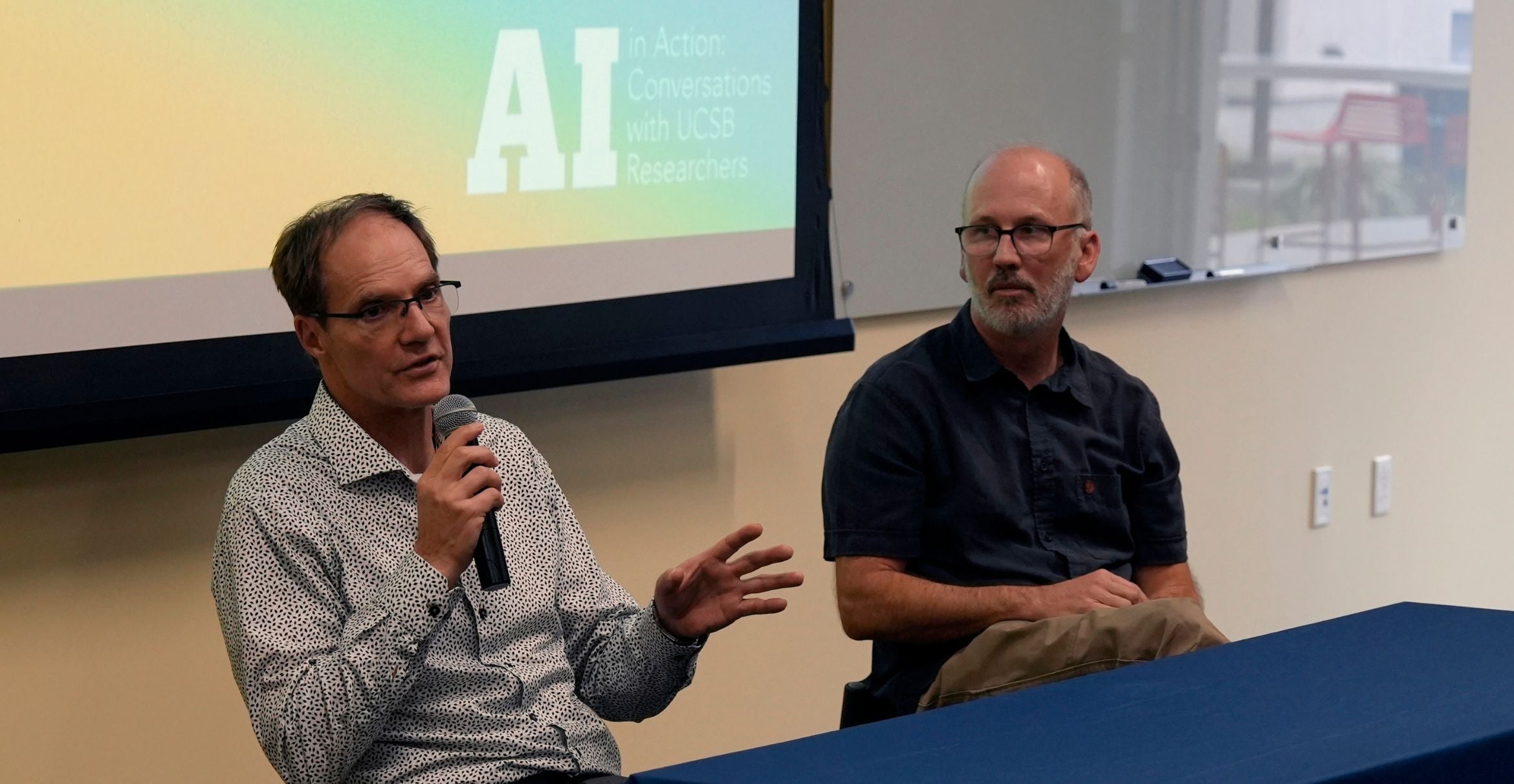
The Conference of the Future
Picture the world in 2050. That’s what scholars from six different continents are trying to do over the next two weeks, as UC Santa Barbara hosts a virtual conference focused on the increasingly grim reality of climate change and what it might mean for our planet in 34 years.
“The World in 2050: Imagining and Creating Just Climate Futures,” part of UCSB’s Critical Issues in America series of talks and events, features more than 50 speakers participating in online discussions investigating what can and should be done to mitigate the effects of climate deterioration.
Given the topic, conference organizers Ken Hiltner and John Foran determined that a nearly carbon-neutral online format is the most environmentally responsible way for a group of researchers around the world to convene. It’s also the beginning of what they see as a shift away from the thousands of miles of air travel (and associated carbon dioxide production) a typical conference requires.
“I believe that online conferences of some sort will be the norm in 2050,” said Hiltner, a professor of English at UCSB and director of the Environmental Humanities Institute. “They just have to be. If we continue going the way we’re going now, air travel will constitute 27 percent of the global carbon footprint. If more conferences shifted this way, there would be a dramatic reduction.”
Hiltner calls long distance travel, which, according to a recent report by the UCSB Office of Sustainability, makes up nearly a third of the university’s overall emissions, “environmental enemy number one for academia.” He aims to reduce both his personal footprint and that of any conference he organizes.
This is the second virtual conference Hiltner has organized. The first was such a success that he and Foran, a UCSB professor of sociology, decided to employ the method for the signature event for the annual Critical Issues in America series of programs, talks and screenings that this year is dedicated to improving the future of the earth’s climate.
Conference speakers — a mix of academics and environmental activists — have uploaded videos to the “Climate Futures” website. Those videos are organized into panels grouped by theme, similar to a traditional conference. Participants are free to watch any videos that interest them and then join in a lively virtual discussion. The conference runs through November 14, and all of the talks open to the public (though you must be registered to comment).
According to Hiltner, online discussion has just as much (if not more) value as the Q&A sessions that accompany a traditional conference. In his experience, virtual conferences can generate three times as many thoughtful comments and interactions.
“At a typical conference, you listen to the talks and then you have to spontaneously come up with a comment,” he said. “Here, you have time to think about it, mull it over, and maybe do a little research to support your question. I think that’s why you get more discussion happening.”
Virtual conferences also eliminate accessibility issues. Hiltner noted that the cost of airfare is often more than the per capita income of many countries in the developing world. Though he was initially drawn to the format for environmental reasons, he has since discovered a broad group of scholars who would not otherwise be able to participate due to personal circumstances or language barriers.
“What we’ve done for this conference is make sure all of our talks are closed captioned,” he said. “Our hope for the next conference like this is to not only have closed captions in English, but in Spanish as well, opening it up to even more scholars.” Additionally, all of the Climate Futures videos and discussions will be archived on the conference website, for anyone to access at any time.
Hiltner pointed out that the virtual conference’s heavy reliance on a blend of technology and human interaction is not dissimilar to the approach for tackling climate change. “We’re not expecting technology alone to solve this crisis,” he explained. “We believe that it’s a social issue, and people have to change what they’re doing. It’s going to amount to a shift in cultural practices.”
Also helpful, he noted, is the spirit of openness afforded by moving the academic discussion to an online space. “Typically, academic conferences are closed door affairs,” Hiltner said. “This conference is entirely open access. Anyone, anywhere can participate. It is a totally public conference, on a global level.”



